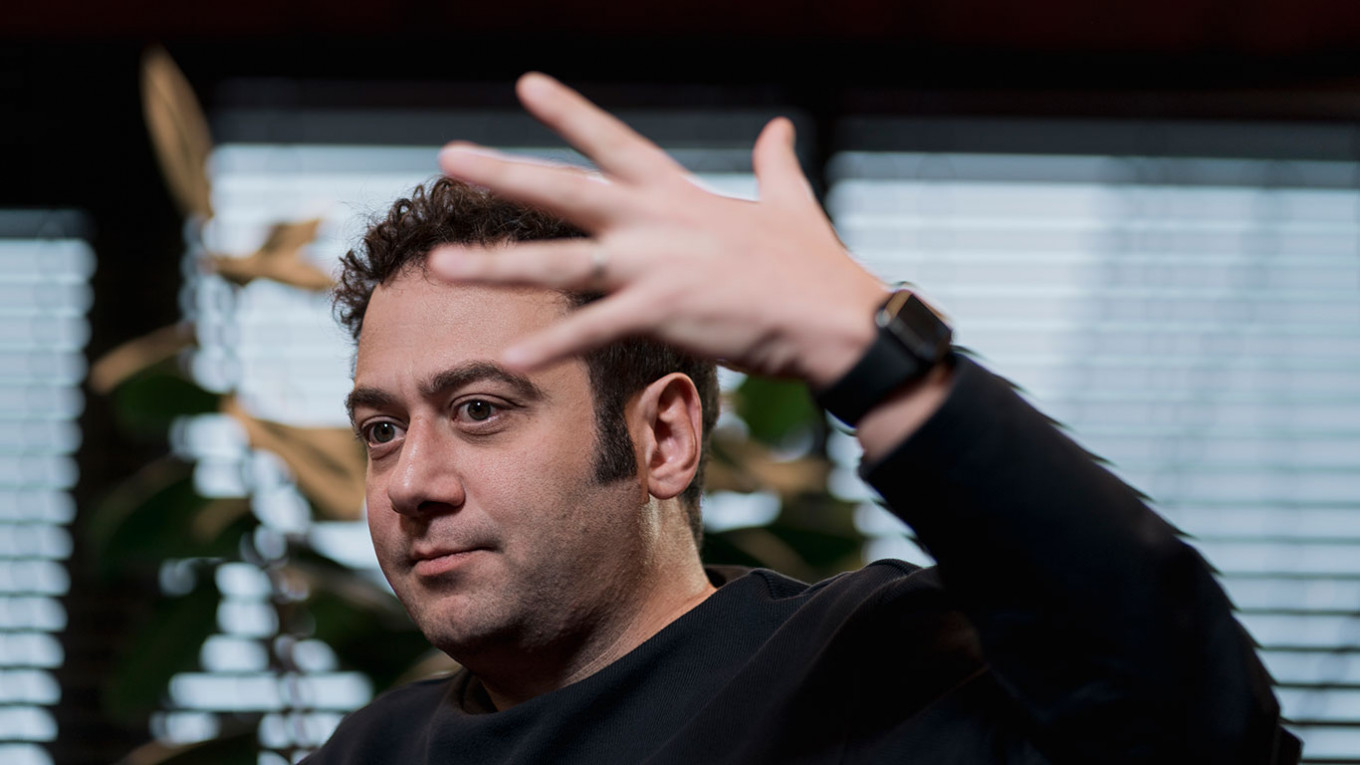The head of Russia’s top technology firm Yandex quit late Tuesday after being slapped with EU sanctions in response to Moscow’s invasion of Ukraine.
Brussels hit Yandex executive director and deputy CEO Tigran Khudaverdyan with an asset freeze and travel ban earlier in the day, citing the firm's role in “hiding information” from the Russian public through the manipulation of search results on its platform.
Yandex — often dubbed “Russia’s Google” — is the country’s largest search engine. Its sprawling business empire also covers taxi services, e-commerce, fast food delivery, online education and a host of other technology-powered businesses.
“Yandex’s former head of news accused the company of being a ‘key element in hiding information’ from Russians about the war in Ukraine,” the EU stated in its official journal, outlining the sanctions against Khudaverdyan and a host of other Russian business figures.
“Moreover, the company has been warning Russian users looking for news about Ukraine on its search engine of unreliable information on the internet, after the Russian government threatened Russian media over what they publish,” it added.
The Kremlin has launched a harsh crackdown on independent news sources since it invaded Ukraine, including a new law which could punish journalists with 15 years in prison for publishing articles about Russia’s military campaign which use information not provided by the Russian government. Censors have also banned the use of the words “war,” “invasion,” and “attack” to describe Russia’s actions in Ukraine — which officials refer to as a “special military operation.”
Throughout this, Yandex has been accused of suppressing independent news sources in its search results and of promoting only state media in its online news portal, which is accessed by tens of millions of Russians every day.
Following the imposition of sanctions, Khudaverdyan immediately stepped down from the company, Yandex said in a statement issued late Tuesday night.
“We were shocked and surprised to learn that Tigran was designated under EU sanctions, and we are extremely sorry to see him step down from his executive director and deputy CEO roles,” said John Boynton, the American chair of Yandex’s board.
In his role as executive director, Khudaverdyan had been the de facto head of Yandex for a number of years, while founder Arkady Volozh officially remained CEO of the company.
Lev Gershenzon, the former head of Yandex News who was cited by the EU in its official journal, said Yandex continues to be an enabler in Moscow’s war on Ukraine.
“If the EU has decided that my position is correct and the wording is successful — good for them,” he told The Moscow Times, referring to the bloc’s use of his criticism in its justification for leveling sanctions on Khudaverdyan.
“I had a specific goal — to change the news stories shown on Yandex’s main page, through which tens of millions of Russians are being misinformed, and as a result of which, the continuation of the war is possible. This goal has not yet been achieved.”
Gershenzon, who worked at Yandex for eight years, including as head of news, welcomed the increased pressure being put on the company in recent days.
“People are discussing and thinking. Some are quitting. Marina Ovsyannikova's case was presented on Yandex’s main page for more than 12 hours. There is international pressure and some are refusing to cooperate [with the company]. The possibility of selling Yandex’s news service is being discussed. These are all the right moves, only, unfortunately, too slow.”
Yandex itself, which is headquartered in the Netherlands and listed on the U.S.-based Nasdaq stock exchange, was not sanctioned. In recent weeks it has warned of a possible default after Russian companies’ share trading was suspended, which could trigger a payout clause for holders of the company’s corporate bonds.
For years Yandex tread a fragile path of compromise in a bid to keep the Kremlin on its side without being coopted or taken over by the Russian state. This has come with allegations of sharing user data with the country’s security services and entering into a complicated ownership structure which gave the Kremlin a veto over the firm’s international activities and deals in sensitive areas such as personal data.
But the sanctions on Khudaverdyan were a surprise and have upended the understanding of what was previously seen as acceptable compromises or the cost of doing business in Vladimir Putin’s Russia.
The Yandex boss, who was called to the Kremlin for a meeting between Putin and the country’s top business figures, had subtly criticized the war in Ukraine, but resisted calls to come out against Moscow’s actions more forcefully.
“What is happening is unbearable. War is monstrous,” Khudaverdyan wrote on Facebook in early March.
“Many people demand the company immediately jump up on an armored vehicle and shout our position. … But what is most important for us now is employee safety and maintaining the operability of our key services. We are not protecting our business, this is about key services … taxis must arrive, goods and food have to be delivered and infrastructure has to work.”
“For these reasons, we cannot climb up on the armored vehicle,” he said.
A Message from The Moscow Times:
Dear readers,
We are facing unprecedented challenges. Russia's Prosecutor General's Office has designated The Moscow Times as an "undesirable" organization, criminalizing our work and putting our staff at risk of prosecution. This follows our earlier unjust labeling as a "foreign agent."
These actions are direct attempts to silence independent journalism in Russia. The authorities claim our work "discredits the decisions of the Russian leadership." We see things differently: we strive to provide accurate, unbiased reporting on Russia.
We, the journalists of The Moscow Times, refuse to be silenced. But to continue our work, we need your help.
Your support, no matter how small, makes a world of difference. If you can, please support us monthly starting from just $2. It's quick to set up, and every contribution makes a significant impact.
By supporting The Moscow Times, you're defending open, independent journalism in the face of repression. Thank you for standing with us.
Remind me later.







